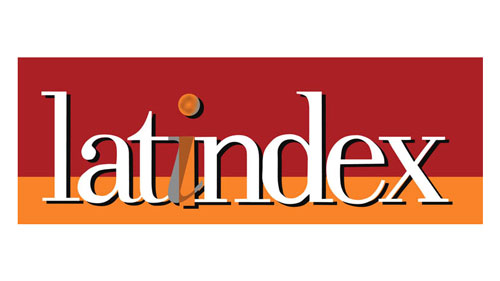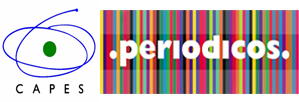Online education in Spanish-language courses: from ERT to possibilities for the post-pandemic period
DOI:
https://doi.org/10.26512/rhla.v21i1.40221Keywords:
ERT, Blended learningAbstract
Due to the pandemic caused by the coronavirus (COVID-19), it was necessary to adopt Emergency Remote Teaching (ERT) to minimize the impacts of social isolation on education. Thus, educational activities, once entirely classroom-based, started to be carried out through online digital technologies. Therefore, in this article, we discuss innovative practices emerging in higher education from the ERE, more specifically, through two objectives: i) Describe the active methodologies and their possibilities in a post-pandemic context, and ii) Propose hybrid teaching in an undergraduate degree in Spanish Language. We draw on Colvara and Santo (2019), regarding the flipped classroom approach in higher education, and on Horn and Stalker (2015), Bacich and Moran (2018) and Filantro and Cavalcanti (2018) for the discussion of active methodologies and blended learning. As a result, we suggest that teachers in higher education institutions (HEIs) should integrate the educational digital resources (EDR) into their practices to create a multimedia narrative for their subjects. In the final considerations, we present guidelines for a blended learning model in an undergraduate course.
Downloads
References
BACICH, L.; TANZI NETO, A.; TREVISANI, F. M. Ensino híbrido: personalização e tecnologia da educação. Porto Alegre: Penso, 2015.
BERGMANN, J.; SAMS, A. Sala de aula invertida: uma metodologia ativa de aprendizagem. Rio de Janeiro: LTC, 2019.
BRASIL. Resolução Nº 1, de 11 de março de 2016. Estabelece Diretrizes e Normas Nacionais para a Oferta de Programas e Cursos de Educação Superior na Modalidade a Distância. Ministério da Educação, 1 mar. 2016.
COLVARA, J. S.; SANTO, E. E. Sala de aula invertida: desafios para o ensino superior. Curitiba: Appris, 2019.
DUDENEY, G; HOCKLY, N.; PEGRUM, M. Letramentos digitais. São Paulo: Parábola Editorial, 2016.
FAVA, R. Educação 3.0: aplicando o PDCA nas instituições de ensino. São Paulo: Saraiva, 2014.
FILANTRO, A.; CAVALCANTI, C. C. Metodologias inov-ativas na educação presencial, a distância e corporativa. São Paulo: Saraiva, 2018.
GARDNER, H. Inteligências múltiplas: a teoria na prática. Porto Alegra: Artes Médicas, 1995.
HORN, M. B.; STAKER, H. Blended: usando a inovação disruptiva para aprimorar a educação. Porto Alegre: Penso, 2015.
KUKLINSKI, H. P.; COBO, C. Expandir la universidad más allá de la enseñanza remota emergencial: ideas hacia un modelo híbrido post-pandemia. Barcelona: Outliers School, 2020.
MORAN, J. M. Educação híbrida: um conceito-chave para a educação, hoje. In: BACICH, L.; NETO, A. T.; TREVISANI, F. M. Ensino híbrido: personalização e tecnologia da educação. Porto Alegre: Penso, 2015.
NEVES, V. J.; MERCANTI, B. L.; LIMA, M. T. Metodologias ativas: perspectivas teóricas e práticas no ensino superior. Campinas, SP: Pontes editora, 2018.
ROCHA, J. Design thinking na formação de professores: novos olhares para o desafio da educação. In: BACICH, L.; MORAN, J. Metodologias ativas para uma educação inovadora: uma abordagem teórico-prática. Porto Alegre: Penso, 2018.
SILVA, I. D.; SANADA, E. R. Procedimentos metodológicos nas salas de aula do curso de pedagogia: experiências de ensino híbrido. In: BACICH, L.; MORAN, J. Metodologias ativas para uma educação inovadora: uma abordagem teórico-prática. Porto Alegre: Penso, 2018.
Downloads
Published
How to Cite
Issue
Section
License
Copyright (c) 2022 Revista Horizontes de Linguistica Aplicada

This work is licensed under a Creative Commons Attribution-NonCommercial-NoDerivatives 4.0 International License.

A Revista Horizontes de Linguística Aplicada de http://seer.bce.unb.br/index.php/horizontesla/index é licenciado sob uma Licença Creative Commons Atribuição-Uso não-comercial-Vedada a criação de obras derivadas 3.0 Unported.
- Autores mantém os direitos autorais e concedem à revista o direito de primeira publicação, sendo o trabalho simultaneamente licenciado sob a Creative Commons Attribution License o que permite o compartilhamento do trabalho com reconhecimento da autoria do trabalho e publicação inicial nesta revista.
- Autores têm autorização para assumir contratos adicionais separadamente, para distribuição não-exclusiva da versão do trabalho publicada nesta revista (ex.: publicar em repositório institucional ou como capítulo de livro), com reconhecimento de autoria e publicação inicial nesta revista.




